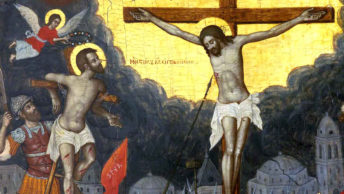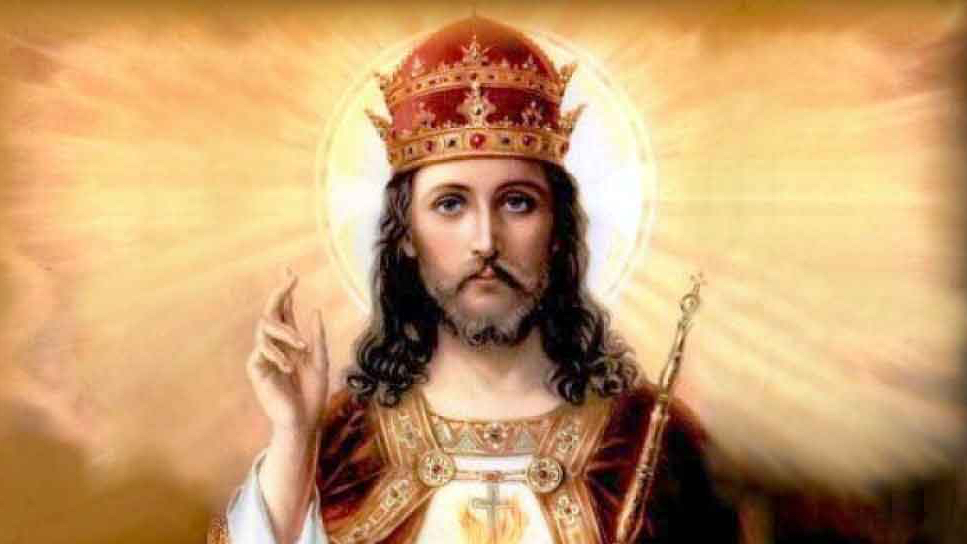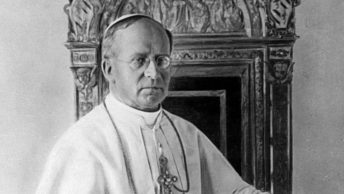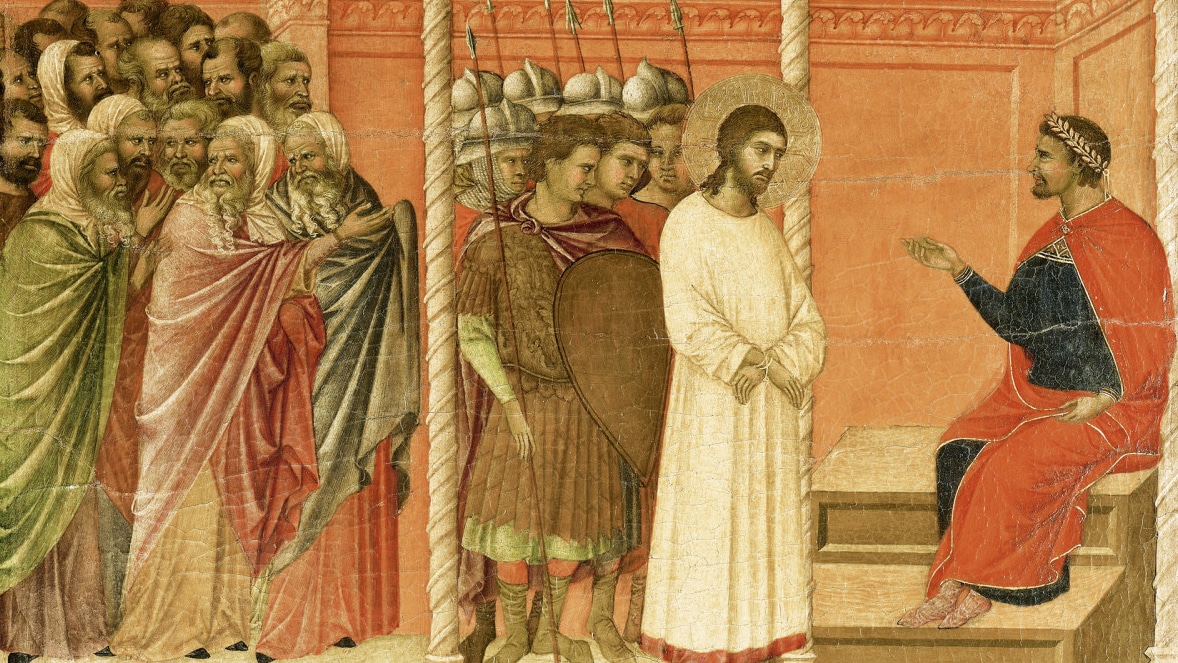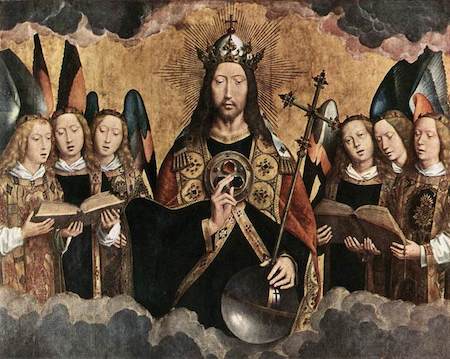 Down in Georgia there’s an old cemetery that was used exclusively by black families—except for one white man buried there. This man, whom we’ll call Thurston, had lost his mother when he was very young. Thurston’s father was an important and well-to-do businessman, and instead of remarrying, he hired a black woman named Mandy to raise his son. Mandy was a devout Christian who came to love little Thurston as if he were her very own child. Every morning she would go up to his room to awaken him by gently saying, “Wake up, little boy, wake up—for God’s morning is come.” Mandy taught Thurston all about Jesus, and her example of faith had a lifelong influence on him. Many years went by; Thurston went away to college, obtained his business degree, and like his father—who had since passed away—became very successful. Then, one day, he received a message: old Mandy had died, and her family wondered if he could come back for her funeral. Thurston of course went back for the ceremony, accompanied by a few friends, and afterwards, standing by her grave, he remarked to his companions, “I know that Jesus is coming again. But if I should die before He returns, I want to be buried right here next to Mandy—because on Resurrection Day, she will wake me first, and speak to me again and say, ‘Wake up, little boy, wake up—God’s morning is come’” (The Priest, October 2007, p. 31).
Down in Georgia there’s an old cemetery that was used exclusively by black families—except for one white man buried there. This man, whom we’ll call Thurston, had lost his mother when he was very young. Thurston’s father was an important and well-to-do businessman, and instead of remarrying, he hired a black woman named Mandy to raise his son. Mandy was a devout Christian who came to love little Thurston as if he were her very own child. Every morning she would go up to his room to awaken him by gently saying, “Wake up, little boy, wake up—for God’s morning is come.” Mandy taught Thurston all about Jesus, and her example of faith had a lifelong influence on him. Many years went by; Thurston went away to college, obtained his business degree, and like his father—who had since passed away—became very successful. Then, one day, he received a message: old Mandy had died, and her family wondered if he could come back for her funeral. Thurston of course went back for the ceremony, accompanied by a few friends, and afterwards, standing by her grave, he remarked to his companions, “I know that Jesus is coming again. But if I should die before He returns, I want to be buried right here next to Mandy—because on Resurrection Day, she will wake me first, and speak to me again and say, ‘Wake up, little boy, wake up—God’s morning is come’” (The Priest, October 2007, p. 31).
This simple, gentle story of faith reminds us that true love doesn’t let itself be restricted by artificial limits of nationality or race; that sharing our belief in Jesus is a vitally important way of preparing ourselves and others for membership in His Kingdom; and that, if we trust in Him, we will one day awaken to a glorious new day of eternal joy. Jesus is the true and everlasting King, and if we willingly choose to be His subjects, we’ll be invited to rejoice with Him forever and ever.
Our country has existed as a constitutional republic for well over 200 years, and the idea of giving our allegiance to a king is foreign to Americans—though with very low approval ratings for the president, Congress, and state leaders and other elected officials, some might be tempted to wonder whether a monarchy would be an improvement. However, any human king or queen, no matter how talented and conscientious, will always fall infinitely short of Christ’s standard—for His reign is one of absolute perfection, and one in which all His subjects will be made completely holy through divine grace. This, of course, is a process—which means that it may be a long time before we’re capable of seeing or even fully imagining the results. Of all the people present at Christ’s crucifixion, barely a handful realized or believed that the sign nailed above Jesus’ head—“This is the King of the Jews”—was anything other than mockery. The Virgin Mary understood this, and possibly also John, Mary Magdalene, and one or two others accompanying them. Of all the others present, however, the only one who truly realized what was happening was the criminal crucified to Our Lord’s right—traditionally known as Dismas, the Good Thief. In a magnificent deathbed confession of faith, he said, “Jesus, remember me when You come into Your Kingdom,” and in response, he received an incredible promise: “Today you will be with Me in Paradise.” Coming from anyone else, this statement would have been a cruel delusion, or the delirious words of a broken man—but Jesus had the divine authority to make such a promise. He is in the royal line of King David and as St. Paul tells us in the Letter to Colossians, because Christ has redeemed us from our sins, we are now fit to share in the inheritance of His Kingdom. God the Father has given His Son all authority in heaven and on earth—not merely as a reward for His perfect obedience, but so that He may be a source of salvation for all who believe in Him.
One day Our Lord will return in unimaginable glory and power, and then everyone—even His enemies—will be forced to acknowledge His authority. Most people in human history will have lived and died before the end of the world, and will thus miss out on this dramatic event, but we are all subject to Christ’s judgment at the moment of death, and our loving Savior wants us to be ready for that all-important day. There are many ways in which Jesus calls to us, “Wake up, wake up, for God’s Kingdom is at hand.” The Lord is always available to us, usually speaking to us in gentle ways and constantly inviting us to a deeper relationship with Him. Such moments of grace might include a thoughtful gesture by a friend or a stranger, reminding us during a difficult time that other people do care; an unexpected gift or compliment that brightens our entire day; a beautiful sunset, a soft snowfall, or some other pretty picture of God’s creation that touches our hearts; an inspirational message from a Scripture passage, homily, or book of spiritual readings, that seems intended just for us; or even the sense of guilt or shame that follows a serious sin on our part, and prompts us to seek reconciliation with our heavenly Father. All these quiet experiences, and similar ones, are often the Lord’s invitation to come closer to Him. Of course, if we ignore these gentle wake-up calls, He might start shouting in order to rouse us from our spiritual sleep: perhaps by allowing us to experience some sort of major failure, disappointment, embarrassment, setback, or crisis—in other words, whatever it takes to get our attention. God’s preference, of course, is to caress us rather than shake us, and to whisper rather than shout. In either case, He wants us to open our eyes and our ears and our hearts, so that the light of His grace may enter in.
Today’s feast of Christ the King is a reminder of our ongoing need for Jesus, and of the importance of making room for Him in our lives by praying each day, attending Mass each week, confessing our sins regularly, learning to see His presence in the people around us and the events of life, and doing our best to obey Him and serve Him with loving hearts. Earthly kings demand the allegiance of their subjects, and require their tribute and service, whether they like it or not. It’s never that way with Jesus. He gives us the freedom to accept Him or reject Him—but He knows that only if we accept Him can we ever truly be happy. Therefore, He constantly seeks to awaken us from our spiritual, earthly slumber, and invites us instead to open our eyes to the glorious new day of His Kingdom.



